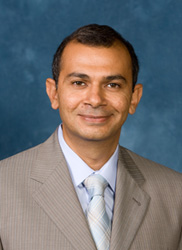Sherif El-Tawil, PhD, PE
Professor
Department of Civil & Environmental Engineering | The University of Michigan
Biographical Sketch

Sherif El-Tawil is Professor of Civil and Environmental Engineering Department at the University of Michigan, Ann Arbor. He graduated with honors from Cairo University in 1989 with a BS in Civil Engineering and received a MS in Structural Engineering in 1991, also from Cairo University. In 1996, he received a PhD degree in Civil Engineering from Cornell University and subsequently joined the faculty of the University of Central Florida. He moved to the University of Michigan in 2002, where he has since been. He also served as Visiting Professor at the University of Rennes, France, in 2008 and the University of California, Irvine. His graduate students and postdocs have all gone into influential positions in academia, industry and government around the world.
Prof. El-Tawil's general research interest lies in computational modeling, analysis, and testing of structural materials and systems. He is especially interested in how buildings and bridges behave under the extreme loading conditions generated by manmade and natural hazards such as seismic excitation, collision by heavy objects, and blast. The focus of his research effort is to investigate how to utilize new materials, concepts and technologies to create innovative structural systems that mitigate the potentially catastrophic effects of extreme loading. Much of his research is directed towards the computational and theoretical aspects of structural engineering, with particular emphasis on computational simulation, constitutive modeling, multiscale techniques, macro-plasticity formulations, nonlinear solution strategies and visualization methods. He has published over 250 technical papers and reports, including 90 refereed journal papers in major publication venues. He is also lead author of a recently released ASCE guide for seismic design of hybrid steel-concrete coupled wall systems.
Prof. El-Tawil also has a strong and long-sustained interest in multi-disciplinary research. He has conducted research in human decision making and social interactions during extreme events and the use of agent based models for egress simulations. He is also interested in visualization and has developed new techniques for applying virtual reality in the field of finite element simulations and the use of augmented reality for rapid assessment of infrastructure damage in the wake of disasters. His interest also extends to the development of new high performance materials, such as ultrahigh performance concretes and high performance asphaltic materials.
A Fellow of the American Society of Civil Engineers, Prof. El-Tawil is Editor-in-Chief for the Society's Journal of Structural Engineering. He was former chair of the Society's Technical Administrative Committee on Metals and is former chair of the committee on Composite Steel-Concrete Construction. He is a member of the ASCE Blast, Methods of Analysis and Seismic Effects committees. He is a holder of two patents and has served as consultant to major companies and to agencies such as the Florida Department of Transportation, Louisiana Department of Transportation, Federal Highway Administration, and the National Institute of Standards and Technology.
Prof. El-Tawil's teaching, service and research efforts have been recognized through numerous national and international awards. Most notably, he is recipient of the Korean Concrete Institute's Paper of the Year Award and ASCE's State-of-the-Art Award, Huber Research Prize, Moisseiff Award (twice), Wellington Prize, Torrens Award, and Norman Medal.